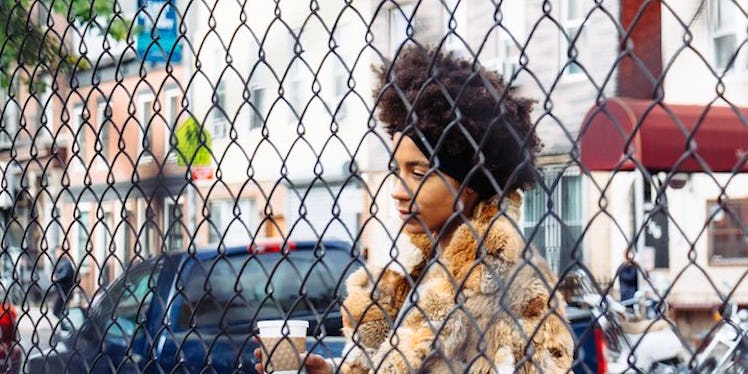
What You Should Tell People Who Believe We Live In A 'Post-Racial' America
A couple of weeks ago, my brother and I decided to check out the HBO documentary "A Class Divide." While it was eye-opening, we couldn't ignore the feeling there was an underlying message.
Throughout the film, one continuous point subtly seeped its way into the narrative: Such divide was not because of race. Instead, it was because of class.
I understand rejecting race as a reason for inequality in any scenario frees anyone who may benefit from said inequality from feeling guilty.
I'm also pretty confident in the idea that many people aren't intentionally or consciously doing this. It's a natural human reaction to dismiss the reality of a situation if it makes you feel bad, especially if you can't personally relate to the issue.
The fact that America shuns people based on class is a tough pill to swallow, but it is usually accepted nonetheless.
However, admitting that systematic oppression based on race was structured to stifle black economic growth, under develop urban communities and alienate black people is a feat most fail to achieve.
I've narrowed down three ways racism still holds black people back today. It's what I like to call the "holy trinity of racism" (post-slavery).
1. Housing Discrimination
In 1934, the Federal Housing Act was enforced. It divided communities based on race and ethnicities to build up white neighborhoods, all while ostracizing black neighborhoods.
Predominately white neighborhoods were marked green and given mortgages to own new homes. However, predominately black neighborhoods were red-lined and marked as financial risks.
Only 2 percent of non-white families were granted mortgages because of this.
Homeownership is the foundation of success in America, especially for middle class Americans.
The FHA set forth a plan that would help white America become more established, while keeping non-white families stagnant. And it worked.
Because of this system, white families could generate wealth due to home equity. These families were then able to finance college educations for their children and begin to save for retirement.
A cycle was created that afforded generation after generation education, opportunity and stability.
But minorities were robbed of this opportunity.
Many families (the majority of whom were black) were displaced due to urban renewal. This destroyed 90 percent of low-income housing that was never replaced.
Forced into a corner, public housing became the only option for these families. This initiated a downward spiral, thus hindering black families from the same opportunities made available to white families following their homeownership.
Mortgage discrimination still takes place today.
2. Segregation And Education In Urban Communities
The segregation of black and white communities caused many businesses to flee urban neighborhoods, decreasing the value and money put into establishments in these areas.
Education systems were greatly affected by this. Today, schools in urban communities experience a stark difference from their high-income counterparts.
Schools in urban areas receive less funding, and this often restricts access to libraries, new computers and up-to-date textbooks.
To add more fuel to the fire, classrooms of low-income schools are taught by far less qualified teachers than those of high-income schools.
Many minority students are highly disadvantaged. Yet, they're still expected to compete with students who are far more advanced on their SATs.
Two drastically different educations, same test: a test that is critical to the advancement of education, and potentially one's career down the line.
The differences are undeniable.
3. Mass Incarceration
The War on Drugs played a crucial role in the mass incarceration of blacks and Latinos. To this very day, black men are targeted daily by the police.
Past studies have shown that black men are 12 times more likely to be sentenced to prison for drugs, although reports have proven blacks and whites use and sell drugs at nearly the same rates.
Black men also receive much harsher sentences for the same offenses.
The disproportionate number of imprisoned black men takes a rather large toll on black families.
One in nine black children has an incarcerated parent, versus one in 57 white children and one in 28 Latino children.
Racism is the engine that has kept this country running for hundreds of years. Race itself is an ideology created to justify racism. Our country was built on the backs of black slaves, and racism was used to advance white America.
Today, racism is a vital tool in maintaining power.
Black people are constantly bombarded with hurdles, and they must exhaust themselves to achieve success.
From housing discrimination to the wage gap, we must work 10 times harder to progress.
Racism is such a heavy burden, it often compels you to accept defeat. Giving up is so enticing when you're up against what seems like the impossible.
At the very least, it's our responsibility to lift each other up, rather than blame those who are in dire need of escaping a maze created to keep them.
Empathy and assertion of facts are critical in the fight for justice and equality. Once we master a true understanding of this, we will be one step closer to a much needed change.